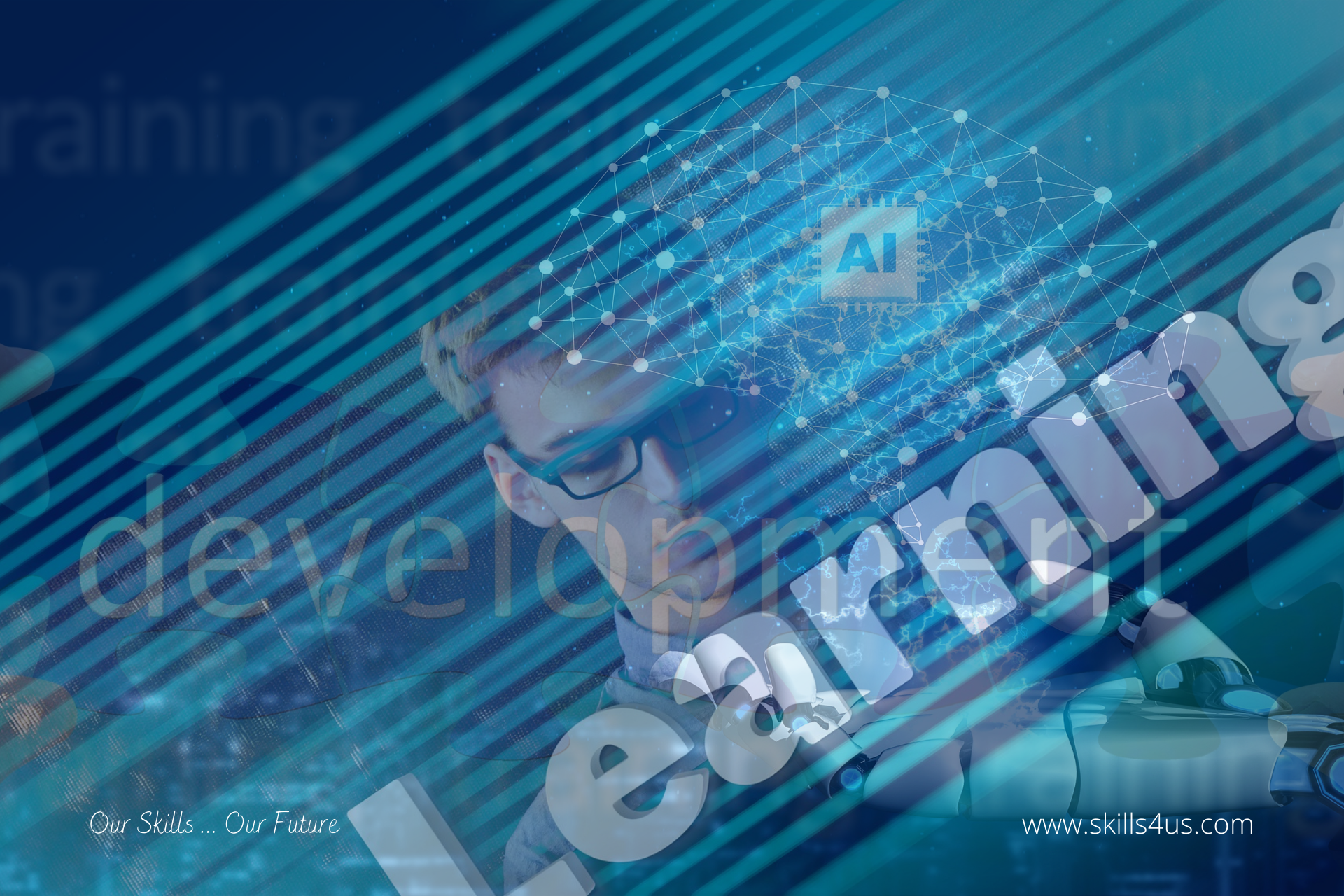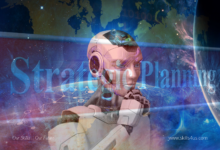
Learning & Development … Artificial Intelligence is Not the Future… It is the Present!
Learning and development is a systematic process of enhancing and developing the capabilities and skills of employees to maintain their operational capabilities. And to improve and develop levels of empowerment, participation, and motivation. Learning and development in our current age have become more challenging. As it is necessary to match the various future HRM trends. Such as adopting intelligent technology, strategic directions, performance needs, and the competitive imperatives of organizations. Thus, AI with learning & development will be in a state of integration in the future. HR professionals in this field need to keep track of massive amounts of information and data using artificial intelligence and machine learning programs.
The importance of AI for learning and development
Learning and development are the areas of HRM that artificial intelligence can completely transform soon. Therefore, HR professionals in learning & development must be familiar with digital transformation. And advanced intelligent technology and use them to enhance the learning and development processes. Thus, they must explore and implement all new AI applications to deal with. And analyze information and data to develop strategies and insights that will help them develop effective learning programs.
The most important benefit of integrating AI with learning & development is to help professionals create more effective learning and development methods and techniques. So, here I suggest a few ways in which AI can transform learning and development:
1) Customizing your learning and development paths
AI allows learning and development programs to adapt to the needs and preferences of each employee. Thus, the learning and training process will be more effective if the employee receives their preferences for the way and how he wants to receive it. There are also benefits from adopting AI applications in allocating learning paths, including:
- Achieve the learning goals of employees faster and in less time, as they receive learning and training based on their personal preferences and objectives.
- Analyzing the data of each employee that includes his performance and objectives and suggesting a particular educational program for him that encourages his participation.
- Create a learning platform where all data, software, materials, and schedules based on employee personal experience, preferences, and goals are stored, tracked, and delivered.
- Positive return on investment in learning and development of the organization leads to better learning outcomes because of its speed and the effective participation of employees.
2) Integrating learning and development into work
Often, most employees are unhappy with fixed and inflexible learning and development schedules that conflict with their own. In addition to dissatisfaction with the content and form of the information because it does not fit their preferences, performance, and goals.
Therefore, learning and development systems supported by artificial intelligence are the appropriate solution to this problem. It saves both employees and the organization time and enhances their participation. The learning process is automated and integrated into the daily workflow by providing programs, materials, and schedules that are developed for each employee individually.
3) Enhanced return on investment
Organizations spend vast amounts of money on employee learning and development programs annually. Unfortunately, the returns on investment from this spending did not live up to the hoped-for. It is due to obstacles and problems that can avoid by using learning and development programs supported by artificial intelligence. It enhances and develops these programs by automating the learning and development analytics and processes that save time, personalize them, and improve engagement and effectiveness. Thus, the natural result will be to achieve a positive return on investment for the organizations.
4) Improve completion rates
According to several studies, less than 25% of employees today are ready to complete their learning and development programs. However, completion rates will improve as AI delivers training content in an employee-favorite learning format followed by enhanced motivation techniques.
Using AI can improve achievement rates by developing a learning program based on each employee’s personal preferences and by making the learning and training cycle short and engaging. It is also preferable to consult specialists to create an educational platform that will automate all processes.
5) Enable everyone to learn and develop
AI applications make learning programs accessible to a wide range of employees of all diversity and abilities, such as people of determination. For example, AI applications can offer automatic subtitles that help people enjoy watching videos in more than 50 languages. Likewise, for the blind, AI offers software and solutions that use neural networks to distinguish context. And create a textual version of an image. Thus, with AI, experts will develop learning and development programs available to employees regardless of their personal and professional abilities and capabilities.
6) Measuring the effectiveness of learning and development
The process of averaging learning and development performance takes a long time. So, by simply using AI applications, HR professionals can quickly perform data analytics, enabling them to gain specific insights into the effectiveness of learning and development. These insights indicate employees’ progress and emphasize their knowledge gaps. The AI then proposes the appropriate learning and development program to bridge the exposed gaps, ensure effectiveness, and achieve the initial learning and development goals.
Nowadays, artificial intelligence enjoys widespread attention at all levels of business organizations. The opinion and orientation of most leaders, entrepreneurs, consultants, and analysts are that artificial intelligence is the future. However, if we think carefully and look deeply at our reality today, we see that AI isn’t the future … is the present!



